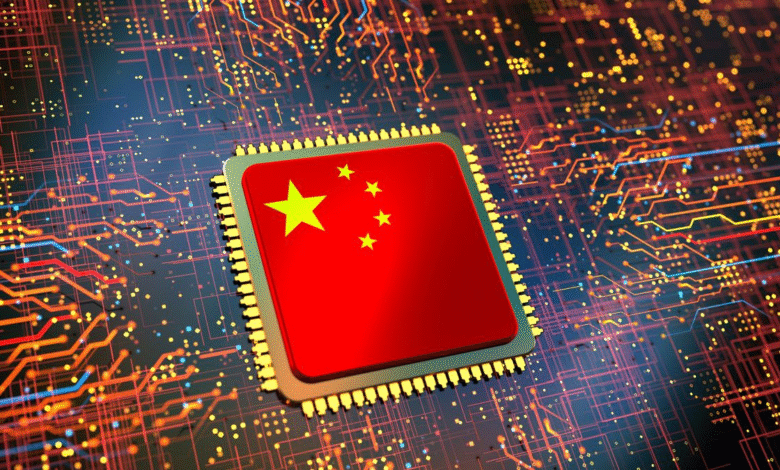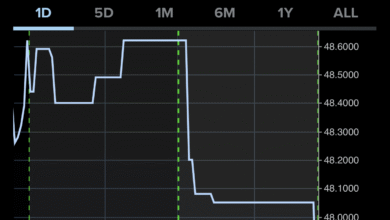China AI Models Inspire Jensen Huang and Nvidia’s Plans

China AI models are at the forefront of a technological revolution, captivating global attention with their innovative capabilities. As noted by Nvidia CEO Jensen Huang, these generative artificial intelligence models from Chinese companies like DeepSeek and Alibaba exemplify world-class development that is redefining the competitive landscape. The recent announcement of resumed Nvidia chip exports to China signals a significant shift, suggesting greater collaboration in AI technology development. With over 1.5 million developers leveraging Nvidia products, China’s commitment to advancing AI is both impressive and crucial for fostering international AI progress. Amidst U.S. export controls, the success of China AI models, particularly in areas such as open-source AI, showcases the country’s resilience and ambition in a rapidly evolving field.
In recent discussions about artificial intelligence, it has become increasingly evident that models from China’s tech sector are making remarkable strides. The generative AI landscape is experiencing rapid growth, with companies like Alibaba and Baidu leading the charge in creating sophisticated solutions that rival global benchmarks. The emphasis on open-source approaches among Chinese developers not only fosters innovation but also encourages collaborative efforts across borders. As the competition heats up, the implications for AI technology advancement are profound, marking an era where the synergy between Chinese initiatives and global tech communities could shape the future of AI.
Nvidia’s Role in China’s AI Revolution
Nvidia plays a crucial role in the rapid advancement of artificial intelligence in China, particularly with its powerful chipsets that have become integral for training generative AI models. Jensen Huang, the CEO of Nvidia, recently highlighted this collaboration, noting that many cutting-edge AI models, such as DeepSeek and Baidu’s Ernie, have emerged from Chinese tech firms leveraging Nvidia’s technology. This partnership not only highlights the potential of Chinese AI innovation but also underscores the strategic importance of Nvidia’s chip exports to China, especially as the marketplace faced significant disruptions due to U.S. export restrictions.
Moreover, the growing number of developers in China—over 1.5 million utilizing Nvidia’s resources—indicates a robust ecosystem for AI development. The recent news of Nvidia resuming chip exports, specifically the H20 chip, brings optimism to the tech community in China. Analysts predict that these shipments could significantly bolster Nvidia’s sales, which have suffered due to regulatory pressures and restrictions. Consequently, the dynamics of the AI landscape in China could shift, emphasizing the resilience and adaptability of local firms within a challenging regulatory environment.
Frequently Asked Questions
What developments have led to Jensen Huang praising China’s AI models?
Jensen Huang recently praised China’s generative AI models during a supply chain expo in Beijing, noting their world-class capabilities and innovation. He highlighted models like DeepSeek, Alibaba’s ChatGPT alternatives, and others that have impacted AI technology development globally.
How are Nvidia chip exports impacting China’s AI technology landscape?
Nvidia’s chip exports are crucial for China’s AI technology development. With the expected resumption of H20 chip shipments, Chinese developers, including over 1.5 million working with Nvidia, can enhance local AI models, furthering advancements in generative AI.
What is the significance of open-source AI initiatives in China?
Open-source AI initiatives in China are significant as they provide free access to underlying code, promoting collaboration and innovation in AI technology development. Companies like Alibaba, with projects like Kimi K2, demonstrate how China’s open-source approach can rival international models such as OpenAI’s offerings.
What challenges do Chinese AI models face due to U.S. export restrictions?
Chinese AI models face significant challenges from U.S. export restrictions on advanced semiconductor technologies. These limitations have restricted access to high-performance Nvidia chips, impacting the development and competitiveness of models like those from Alibaba and Tencent.
How does Jensen Huang view China’s position in the global AI race?
Jensen Huang acknowledges China’s strong position in the global AI race, highlighting the rapid development of generative AI models by Chinese companies despite export restrictions. He believes that the open-source AI movement in China can propel international collaboration and technological progress.
In what ways are Chinese AI technologies being integrated into consumer applications?
Chinese AI technologies are integrated into various consumer applications such as Tencent’s WeChat, Alibaba’s Taobao, and ByteDance’s Douyin. These integrations showcase the practical benefits of China’s AI models in enhancing user experiences and service efficiency.
What are the implications of the recent U.S. government actions on AI technology exports to China?
The recent easing of U.S. export restrictions on AI technology to China could facilitate improved collaboration and innovation. It allows Chinese companies to access crucial Nvidia chips, potentially boosting their AI models and enhancing their competitive edge in the global market.
How is the landscape of AI in China expected to change following Nvidia’s announcements?
Following Nvidia’s announcements regarding chip exports, the AI landscape in China is expected to see increased development and expansion of generative AI models. This boost could lead to more competitive innovations from companies like Alibaba and Tencent, further establishing China’s role in global AI technology development.
| Key Point | Details |
|---|---|
| Jensen Huang’s Commendation | Nvidia CEO praises China’s generative AI models like DeepSeek, Alibaba and Tencent’s efforts which are touted as world-class. |
| Resumption of Chip Exports | Nvidia is expected to resume shipments of H20 chips to China following a halt due to U.S. export controls. |
| Impact of U.S. Restrictions | Nvidia faced a $2.5 billion loss in sales and projects an additional $8 billion hit due to U.S. export controls. |
| Open-Source AI | Huang commends the open-source approach by Chinese companies, contrasting it with OpenAI’s proprietary model. |
| China’s AI Innovation | More than 1.5 million developers in China are innovating using Nvidia technology. |
| Future Outlook | U.S. easing restrictions on tech exports to China may pave the way for future collaboration. |
Summary
China AI models have gained significant recognition, as highlighted by Nvidia’s CEO, Jensen Huang, who praised their world-class development. The resumption of Nvidia’s chip exports signals a thawing of trade tensions and reinforces the potential for continued innovation in artificial intelligence. With a strong emphasis on open-source development, Chinese companies are positioning themselves as leaders in the global AI landscape, pushing boundaries despite current restrictions. This ongoing evolution in China’s AI capabilities suggests a bright future for collaboration and advancement in the field.




